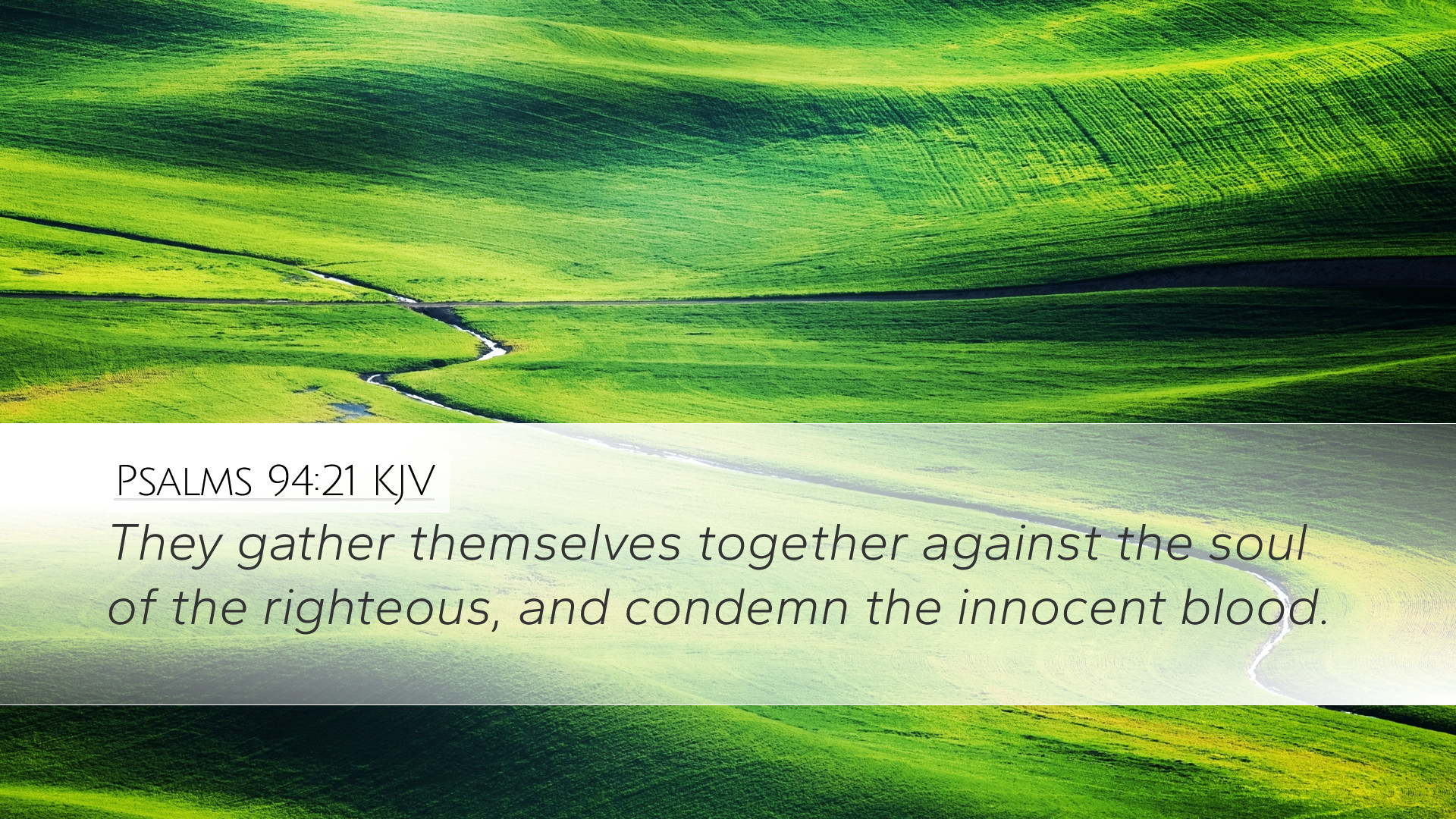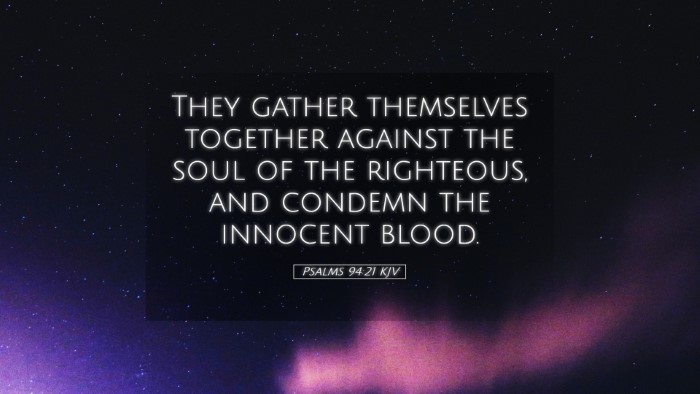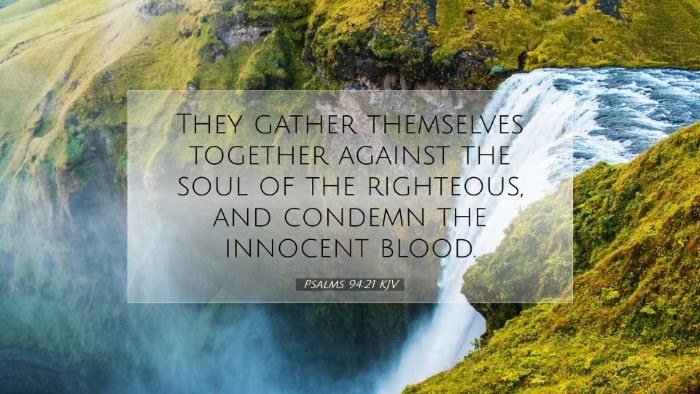Commentary on Psalms 94:21
Psalms 94:21 (KJV): "They gather themselves together against the soul of the righteous, and condemn the innocent blood."
Introduction
Psalm 94 is a profound meditation on the justice of God in the face of human oppression. The psalmist expresses deep anguish over the plight of the righteous who are unjustly treated by the wicked. Verse 21 encapsulates this struggle, highlighting the societal and judicial injustices faced by the innocent.
Contextual Understanding
This psalm, attributed to an anonymous author, likely reflects a time of national distress, possibly during the Babylonian exile or in another period of oppression. It is essential to understand that the psalmist speaks not only to individual suffering but to the corporate suffering of God's people.
Matthew Henry's Insights
Matthew Henry emphasizes that the wicked often conspire against the righteous, seeking to undermine their integrity and destroy their influence. According to Henry, this verse reflects the reality of a collusion of powerful adversaries who target those who uphold justice and righteousness. He asserts:
- Gathering together: This phrase indicates a calculated effort by the ungodly to attack the righteous. It illustrates the premeditated and organized nature of wickedness.
- Condemning the innocent: The judicial complexities and moral corruption of those in power are emphasized here. Henry notes that this condemnation is not based on truth but rather on malice and envy.
Albert Barnes' Commentary
Albert Barnes provides a detailed analysis of the psalmist's articulation of the justice of God amidst oppression. He asserts:
- Opposition to the righteous: Barnes highlights that the verse conveys a universal truth; the righteous are often targets of unfounded aggression. This is part of a broader biblical narrative where the faithfulness of God's people invites opposition.
- Innocent blood: The reference to “innocent blood” is profound, emphasizing the gravity of wrongful condemnation. Barnes suggests this serves as a reminder of the spiritual warfare faced by believers.
Adam Clarke's Perspective
Adam Clarke reflects on the theological implications of the psalmist's lament. He states:
- Divine justice: Clarke insists that this verse calls into question the apparent triumph of injustice, reminding the faithful that God ultimately holds the scales of justice.
- The role of the church: Clarke challenges the church to remain steadfast in faith despite societal injustices, underlying the importance of a faithful witness in times of oppression.
Theological Implications
The dynamics of this verse extend beyond individual suffering and call into question God’s role in human affairs. It challenges believers to reflect on:
- The nature of God’s justice: How does God's justice manifest in times of oppression? This verse affirms that, although it may seem absent, divine justice is active and inevitable.
- The responsibility of the righteous: Faithful believers are called to endure and maintain their integrity, often being the voice of truth amid a culture of lies and oppression.
Practical Applications
For pastors and theologians, this passage underscores essential applications:
- Encouragement in adversity: Scripture illustrates that God does not abandon the righteous, providing comfort to those who feel unjustly condemned.
- Advocacy for justice: The church is reminded of its prophetic role in society, standing against injustices perpetrated by powerful individuals and systems.
- Prayerful intercession: Believers are encouraged to pray for divine justice and the protection of the innocent, affirming the belief that God sees and will act in due time.
Conclusion
Psalms 94:21 serves as a poignant reminder of the struggles faced by the righteous in a world that often aligns itself against them. By drawing from the insights of esteemed commentators, one finds not only a reflection of personal and communal afflictions but also a call to action for the faithful. God’s justice will ultimately prevail, and the righteous are called to endure, pray, and act justly in their daily lives.


